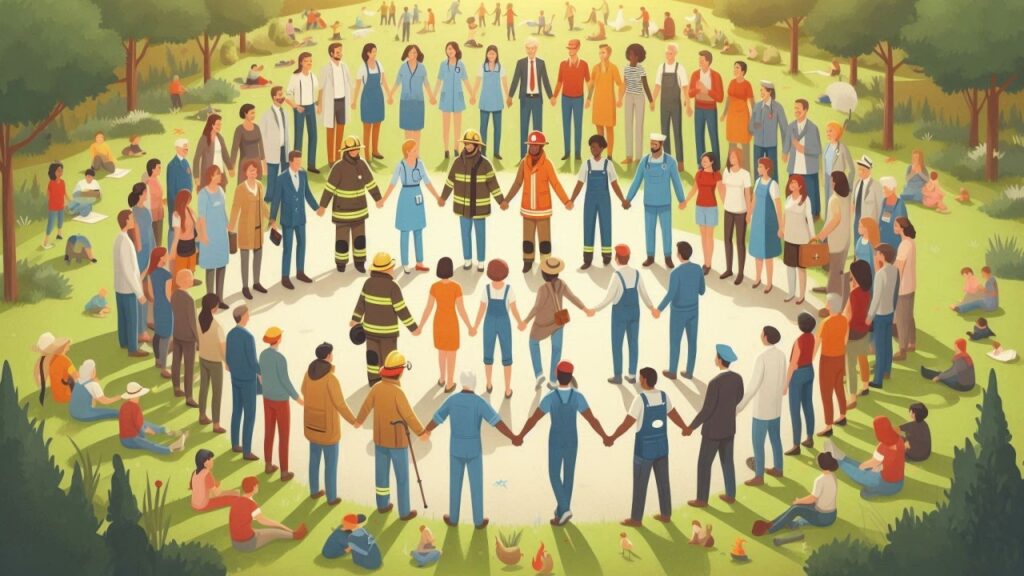
How Community Policing Is Helping to Reduce Neighborhood Crime
Abuja, Nigeria – July 2025 – As Nigeria continues to battle rising insecurity, one grassroots approach is quietly reshaping public safety: community policing. Across neighborhoods from Lagos to Kano, local residents and law enforcement are working hand in hand to tackle crime, restore trust, and build safer communities.
Once viewed with skepticism, community policing is now being embraced as a critical tool in the fight against robbery, cultism, drug abuse, and other neighborhood-level crimes.
Citizens and Police, Working Together
Community policing involves collaboration between residents and local police units to jointly identify and address crime-related issues. Instead of reactive policing, this model emphasizes proactive engagement, dialogue, and prevention.
In Lagos State, the Neighbourhood Safety Corps—a volunteer-driven initiative—has trained thousands of community members to support police efforts. Dressed in identifiable vests, they patrol streets, gather intelligence, and report suspicious activities. This has helped prevent armed robbery in hotspots like Ikorodu and Agege, officials say.
“People know us and trust us,” said Musa Adegbite, a volunteer in Surulere. “We are not strangers in the community, and that makes it easier to get information and act quickly.”
Crime Reduction Through Intelligence Sharing
One of the key benefits of community policing is improved intelligence gathering. In areas like Benin City and Port Harcourt, residents now report crimes via local WhatsApp groups and neighborhood watch meetings. These tips have helped police intercept criminal hideouts, recover stolen vehicles, and even stop cult clashes before they escalate.
According to the Nigerian Police Force, community tip-offs have contributed to the arrest of over 5,000 suspects between January and June 2025. “When people trust the system, they become the first line of defense,” noted DSP Helen Uche, a spokesperson in Rivers State.
Rebuilding Trust in Law Enforcement
In many Nigerian cities, strained relations between the public and police have long hindered crime prevention. Community policing is helping to change that. By attending town hall meetings, listening to complaints, and engaging in local events, police officers are rebuilding bridges once damaged by years of mistrust and abuse.
In Kwara State, officers now accompany local youth groups during cleanups and community drives. In turn, the youths share security concerns and coordinate with police during festivals and high-risk periods.
“It’s no longer us versus them,” said Inspector Farouk from Ilorin. “Now we are part of the same team.”
Empowering Women and Youth
Community policing has also opened doors for youth and women to take part in crime prevention. In Kaduna, women’s safety groups now report cases of domestic violence and drug abuse with protection from local authorities. In Anambra, youth-led watch teams help monitor school zones and markets, deterring petty theft and cultism.
With proper training and clear reporting channels, young people and women are playing a growing role in protecting their communities and shaping local policies.
Challenges Still Remain
Despite successes, community policing in Nigeria still faces hurdles: funding constraints, political interference, and lack of equipment hamper some local units. In rural areas, poor communication networks slow response times, while in urban centers, rival vigilante groups sometimes create confusion.
Security analysts say the model must be standardized and supported by law, not left to informal arrangements. “Community policing works best when it’s structured, accountable, and adequately resourced,” said Dr. Michael Odion, a security consultant in Abuja.
A Growing Solution to Local Crime
While Nigeria continues to confront broader national security threats, community policing is proving to be a reliable, low-cost solution to street-level crime. With more residents now playing active roles in securing their neighborhoods, the model is gaining momentum as a vital part of Nigeria’s security architecture.
As more communities embrace this approach, the message is clear: when people take ownership of their safety—and law enforcement listens—crime finds fewer places to hide.
Stay with us for more updates on local safety and security innovations across Nigeria.










